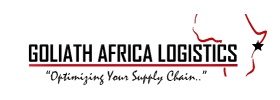According to EACCMA, 2004, “prohibited goods means any goods the importation, exportation, or carriage coastwise, of which is prohibited underthis Act or any law for the time being in force in the Par
LCL Shipping in Kenya 101:What you need to Know
LCL Stands for Less-than-container load. An LCL shipment is when your goods don’t fill an entire container (FCL) and therefore they will be loaded into a container with other shippers’ goods to make a
The Future of Logistics: Predictions and Trends for 2023
The logistics industry is constantly evolving, driven by changes in technology, consumer behavior, and global economic trends. As we move into 2023, it’s important for logistics companies to stay ahea
The Importance of Effective Inventory Management in Logistics
Effective inventory management is a critical aspect of logistics that plays a vital role in ensuring the smooth and efficient flow of goods from suppliers to customers. Poor inventory management can r
The Benefits of Outsourcing Logistics Services
Outsourcing logistics services has become increasingly popular in recent years, and for good reason. It offers a range of benefits for businesses of all sizes, allowing them to focus on their core com



